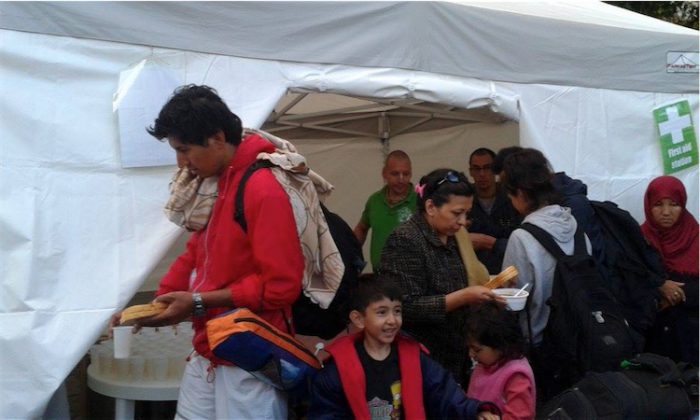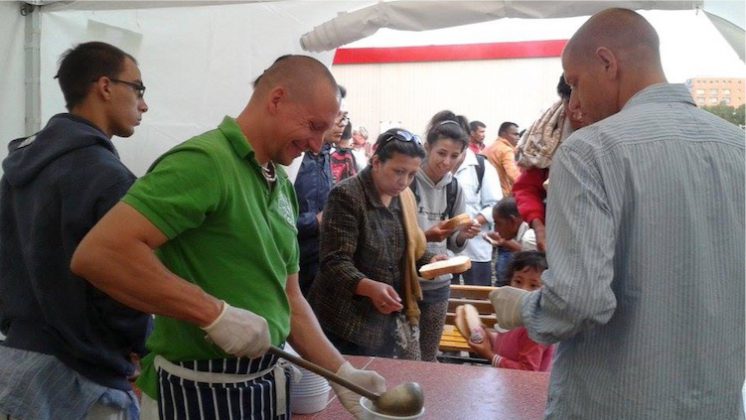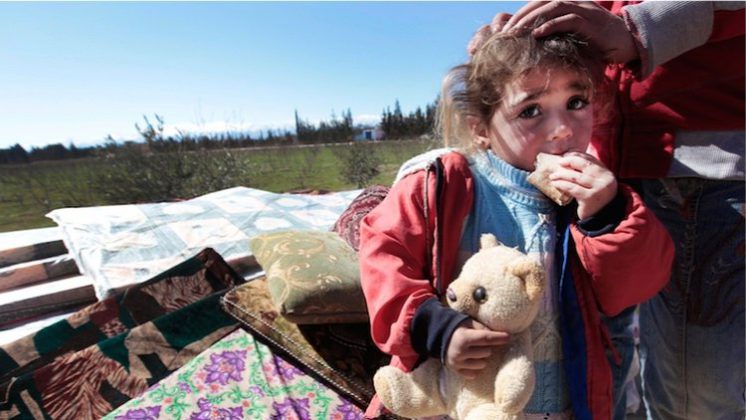Over the past two years, Europe has been facing a refugee crisis. Many people trying to reach Europe are from countries shaken by war, violence and conflict, such as Iraq, Afghanistan and Syria.
UN data show that more than 300,000 refugees have tried to reach Europe so far this year. Of those, almost 200,000 landed in Greece and 110,000 in Italy.
At the same time, some 2,500 migrants or refugees are estimated to have died or gone missing this year, trying to reach Europe.
Once landed safely, most of the refugees continue on their journey towards Western Europe. Their route goes trough Hungary, the last country with protected borders before they can enter and move freely within the European Union countries.
About 145,000 migrants have been detained already this year in Hungary, more than triple the figure recorded in all of 2014. Police reported a single-day record of 3,241 detentions of migrants on Wednesday August 26th, 700 more than the previous day, as they launched a new initiative seeking to channel migrants to one of the country’s five camps using special trains.
(Shocking photos of refugee families trying to get through the Hungarian borders by Reuters: http://galeria.index.hu/belfold/2015/08/27/fennakadtak/)
The government says about 40,000 of the migrants, who mostly travel without passports to complicate deportation, have identified themselves as Syrian fleeing the 4-year civil war there.
Those who report to the open camps rarely stay, sometimes long enough only to collect money wired by relatives, before continuing west through the passport-free EU zone. Their preferred destinations are wealthier nations, particularly Germany.
But at several points along Hungary’s meandering 109-mile (174-kilometer) border with non-EU member Serbia, undaunted migrants crossed the frontier on foot. Some said it was safer to walk rather than risk death by being smuggled in a vehicle.
The train stations on Hungary’s the Southern border and in the capital city Budapest are packed with refugees, among them families with young children, women and old people – all sleeping on the bare floor.
Civil organizations have stepped up to help them with medical aid, water or food.
ISKCON Hungary has also risen to the challenge, and now distributes hundreds of plates of freshly cooked meal on two locations near the two main train stations. The prasadam is always being accepted with gratitude by the refugees, most of whom have not touched freshly cooked food for weeks.
Devotees also provide them with clothes, shoes, diapers, soap and other items to help them maintain their health and personal hygiene.
“Helping needy people without discrimination is considered to be a moral duty by Krishna-devotees.” Declares Gandharvika Prema Dasi ISKCON Hungary’s spokesperson. “Above all and most importantly we are all equal spirit souls, compared to which our specific religions, skin colors and nationalities are secondary. According to our scriptures it is our duty to respect and to take care of the people coming to our home, no matter what their backgrounds are.
“Although we don’t challenge the notion that every nation has the right to self-defense or to protect their borders, but that should not mean that we give up the principle of compassion, especially towards those who were forced to leave their countries, for fearing their lives.”
“In the not so far history, during the 2nd World War and a few years after in 1956, tens of thousands of our fellow Hungarians were in the same situation. To avoid being deported or killed, they had left the country, and they had been compassionately helped by people of other nations. Now, we feel, it is our turn to do the same.”













